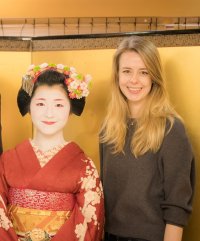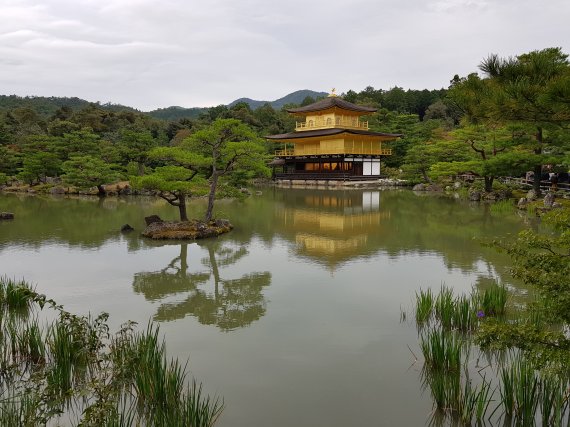‘I was curious about how it is to live in a country with a totally different culture. I thought Japan would be very nice so I decided to go to Kyoto. I found out what sort of research was being done at the university there and emailed the professor with the most interesting topic.
Mice
I am spending six months doing research on the Hes7 gene in mice. This is a gene that influences development processes in embryos. We track the activation of the gene using fluorescence. We introduced the fluorescence using a plasmid, a circular piece of DNA. They are more easy-going about animal testing in Japan; you don’t have to get a special animal testing certificate. You just practise with your supervisor and once they are satisfied that you know what you are doing, you continue on your own.
The staff of the mice laboratory put my plasmid into pregnant females, but for the rest I do everything myself. I select the mice which have the plasmid, and therefore the fluorescence, and get them to mate with each other. Then I collect up the tails of the embryos, treat them and look at them under a microscope.
Working six days
Because I work with live mice instead of with cell lines, the waiting time is long. I hadn’t given that any thought beforehand. After injecting my plasmid, it took three months until I had the first positive adult mouse in which to test whether the plasmid was doing what it was supposed to do. In those three months I actually didn’t have much to do. Luckily there were a few small projects that I could help my supervisor with.
Working at the lab here is not very different to lab work in Wageningen. The biggest difference is the working hours. Here it is normal to work from about 10 until 7, and people work on Saturdays as well. There is also a very clear hierarchy. You can’t address the professor by his first name.

Tasting sake
Although I work on Saturdays, I do have time to sample the culture in my spare time. I have visited the tourist hot spots such as Tokyo, Hiroshima and lots of temples. I also belong to a traditional Japanese cooking club, and I often go to festivals and sake tastings. Sake is a typical Japanese alcoholic drink.
I eat out more here than I do at home because it is relatively cheap and there are lots of new things to try. It is much more normal to eat out here; every restaurant has a table or a bar for people who come on their own.’

